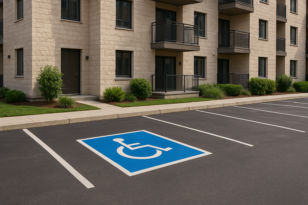In Israeli real estate transactions, trust and transparency are crucial. Buyers rely on sellers to disclose material details that could affect their decision, such as property defects or ongoing legal disputes. But what happens when key information is withheld? This article examines a recent court ruling that addresses whether failing to disclose significant issues—like severe dampness and pending litigation—violates the duty of good faith in negotiations and whether such a breach entitles the affected party to compensation.
By Adv. Idan Ilani, with the assistance of Eden Stoklov
The duty of good faith in negotiations leading to a contract is enshrined in Israeli law, which stipulates that every person must act in good faith and in an accepted manner during negotiations.
Lack of good faith may lead to an obligation to compensate for damages caused to the other party due to the negotiations and the formation of the contract. The following case summary reviews the ruling of the Magistrate’s Court, which examined whether the failure to disclose material details in a real estate transaction constitutes a breach of the duty of good faith and whether the violator is, therefore, liable to pay agreed compensation to the other party.

Case Background:
The case involves a lawsuit filed by buyers against sellers for an alleged breach of the duty of good faith. The plaintiffs, a couple who purchased a five-room apartment in Holon from the defendants (hereinafter: “the buyers” and “the sellers”), claimed that the sellers concealed severe dampness issues originating from the apartment located above theirs. Furthermore, they hid that legal proceedings were underway against the neighbor—the apartment owner above.
According to the buyers, before purchasing the apartment, the sellers told them that a water pipe had burst in the apartment above, but the issue had been handled and repaired. Consequently, relying on a clause in the sale agreement stating that signs of dampness and leaks from the upper apartment had been addressed and repaired, the buyers proceeded with the purchase.
However, after taking possession of the apartment, they discovered that the sellers had concealed significant dampness issues, breaching the duty of good faith. In light of this, the buyers claimed they were entitled to the agreed compensation stipulated in the contract and additional damages for the depreciation of the apartment’s value and emotional distress.
On the other hand, the sellers argued that they acted in good faith, informed the buyers about the dampness issues and their repairs, and even offered them the opportunity to conduct a home inspection. They stated that they relied on a ruling by the Supervisor of Real Estate Registration, an appraiser’s report, and a moisture test indicating that the dampness spots had dried following repairs in the apartment above.
Legal Question:
The court was asked to determine whether failing to disclose material information in a real estate transaction—such as severe dampness issues and ongoing legal proceedings—constitutes a breach of the duty of good faith in pre-contract negotiations and entitles the injured party to compensation for damages incurred.
Decision:
The court partially accepted the buyers’ claim. The sellers had failed to disclose the significant dampness problems in the apartment. They withdrew their seller’s affidavit from the lawsuit and even waived the testimony of the attorneys involved in the transaction, who could have potentially supported their version of events.
However, the court rejected the claim for agreed compensation because it was not proven that the sellers knew about the defect of unrectified dampness in the apartment above, which resulted in water damage to the purchased apartment after it was handed over. Additionally, the court ruled that a fundamental breach of a condition not explicitly defined as fundamental in the contract does not entitle the injured party to agreed compensation.
Furthermore, the court held that the sellers breached their duty of good faith in negotiations. They misled the buyers and failed to disclose severe dampness problems that had been repaired shortly before the sale and the ongoing legal proceedings against the neighbor in the apartment above. The court emphasized that even if the dampness damage had been repaired, it could still lead to a depreciation in the apartment’s value and deter potential buyers from proceeding with the transaction.
Accordingly, the court partially accepted the buyers’ claims. The demand for agreed compensation was denied, but due to the severity of the dampness damage and its significant impact on the buyers, the court awarded them compensation for emotional distress, legal expenses, and attorney fees.
Civil Case No. 18252-01-18 Eliyahu et al. v. Mizrahi et al.
Gindi Caspi & Co. is one of Israel’s most prominent law firms in real estate, planning and zoning, and urban renewal. With decades of extensive experience handling complex and large-scale real estate transactions, the firm is consistently ranked among the top-tier firms in these fields by all major rating companies. Notably, the international LEGAL 500 recognized Gindi Caspi & Co. as a Leader in real estate, planning, and zoning and highlighted Adv. Ziv Caspi as a Leading Individual in Israeli law. The firm has also received numerous accolades, including ranking among the top real estate law firms (Dun’stars) in planning, zoning, and urban renewal. It was honored as a “pillar and cornerstone in fulfilling the nation’s vision for building and settling the land.” For five consecutive years, the firm has been ranked first in Israel in the field of urban renewal.
For inquiries, contact law@gindi-caspi.co.il.







